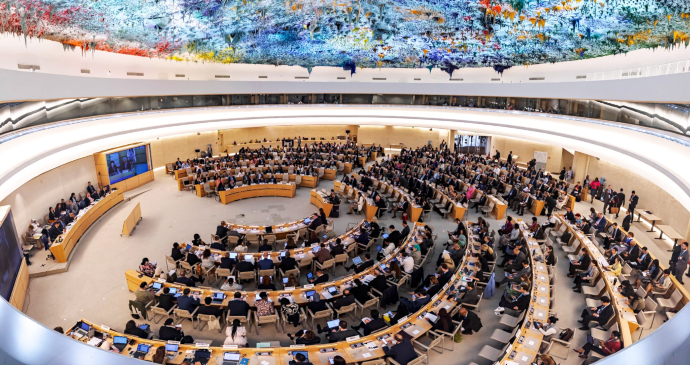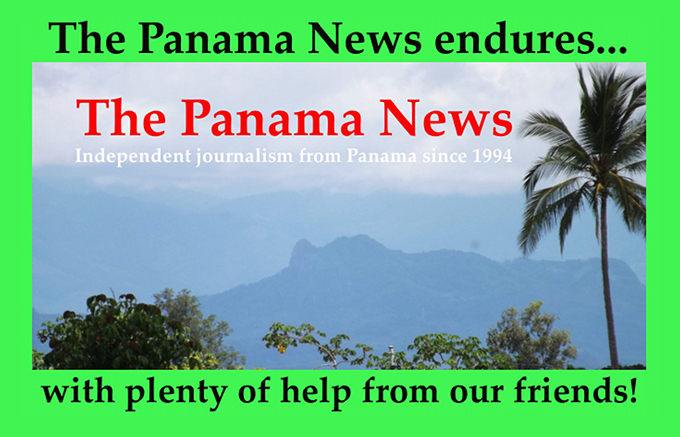The 76th World Health Assembly in Geneva. WHO photo.
A generational opportunity that we must seize
remarks to close the 2023 World Health Assembly by Dr Tedros Adhanom Ghebreyesus
Your Excellency Christopher Fearne,
Excellencies Ministers, Heads of Delegation, dear colleagues and friends,
We have come to the end of another long but fruitful World Health Assembly.
I’m sure many of you are tired and are looking forward to going home.
But as you do, spare a thought for delegates at the first World Health Assembly in 1948, which lasted for four weeks. Be grateful.
At the beginning of this Assembly, we took a photo in exactly the same spot that the photo was taken of the first World Health Assembly in 1948. Thank you all for being part of it.
You can be satisfied that you return home having made many significant resolutions, decisions and strategies, on the vast array of issues on which WHO works.
This includes behavioral sciences; best buys for NCDs; diagnostics; disabilities; drowning prevention; emergency, critical and operative care; food micronutrients; indigenous health; infection prevention and control; maternal and child health; medical oxygen; primary health care; refugee and migrant health; rehabilitation; traditional medicine and more.
The approval of the budget for 2024-25, including the 20% increase in assessed contributions, is very encouraging, and the next step in the direction of a stronger and more effective WHO.
We also appreciate your support for the idea of an investment round, and we look forward to working with Member States further to bring that idea to fruition.
Both the increase in assessed contributions and the investment round are historic and a huge milestone. Thank you so much.
Last week’s strategic round tables offered an opportunity to highlight some of the most pressing public health challenges: pandemic preparedness and response; climate change and health; tuberculosis; immunization; the WHO Framework Convention on Tobacco Control; and health workforce, which is central to addressing every threat we face.
This week also saw the launch of the final report of the Council on the Economics of Health for All, with several strong recommendations for how we value human and planetary well-being, rather than a crude focus on GDP. I commend the report to you.
The year ahead offers several significant opportunities to make substantial progress on all the issues you have discussed over the past nine days.
In particular, the high-level meetings on universal health coverage, tuberculosis and pandemic preparedness and response at this year’s UN General Assembly are major opportunities to catalyze much-needed political commitment.
Likewise, the continuing negotiations on the pandemic accord and amendments to the International Health Regulations are an unprecedented opportunity to learn from the mistakes of the COVID-19 pandemic and ensure they are not repeated.
Your challenge as Member States is to negotiate a strong accord for approval just 12 months from now.
This is a generational opportunity that we must seize. We are the generation that lived through the COVID-19 pandemic, so we must be the generation that learns the lessons it taught us, and makes the changes to keep future generations safer.
In particular, we must work hard to counter the mis- and disinformation about the accord that is circulating in many Member States.
We cannot mince words: the idea that this accord will cede authority to WHO is simply fake news. This is an accord by Member States, for Member States, and will be implemented in Member States in accordance with their own laws.
Excellencies,
As I said in my remarks at the opening of this Health Assembly nine days ago, the challenges we face are daunting and complex.
They are made harder by the geopolitical context in which we live.
We live in a world of deep divisions, and at times those divisions have been evident at this Health Assembly.
We cannot pretend they don’t exist, but nor can we be paralysed by them.
Where we agree, we must work with full determination and cooperation; and where we disagree, we must continue to work to find common ground.
As we do, we will often find that our disagreements can be overcome and our divisions can be narrowed.
In other words, we will find that health can be a bridge to peace.
I thank Switzerland and Oman for their efforts to put peace on the agenda of this Health Assembly.
The vital connection between health and peace is not a new idea, and nor is it something that lies outside the mandate of WHO.
It has been there since the very beginning, in our Constitution, which says that the health of all peoples is fundamental to the attainment of peace and security, and is dependent upon the fullest co-operation of individuals and States.
This is what COVID-19 has taught us: that pathogens have no regard for the lines humans draw on maps, nor for our politics, religions or anything else that we use to divide ourselves from each other.
To pathogens, we are all one, and that’s how we must see ourselves: one people, sharing one planet, working together with one purpose – the highest attainable standard of health for all people.
Contact us by email at fund4thepanamanews@gmail.com
To fend off hackers, organized trolls and other online vandalism, our website comments feature is switched off. Instead, come to our Facebook page to join in the discussion.
These links are interactive — click on the boxes












